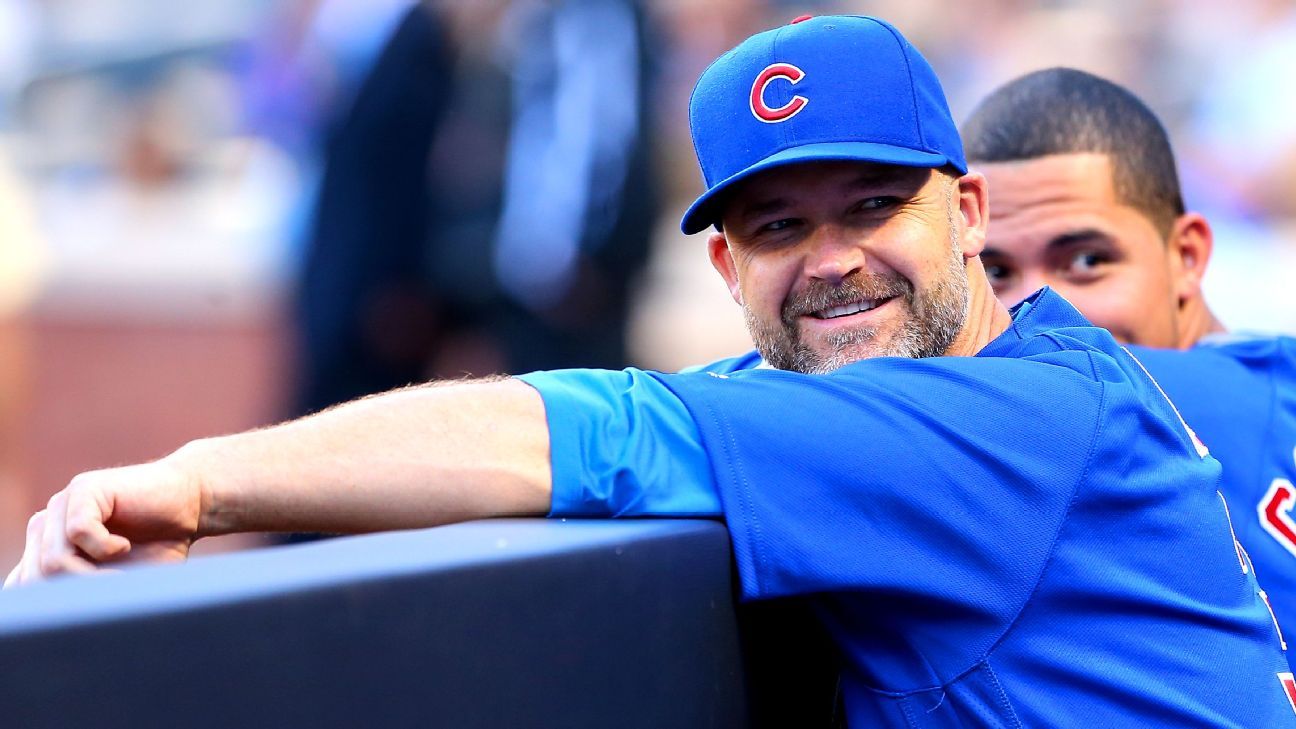CHICAGO — The Chicago Cubs‘ hiring of David Ross to be their next manager comes down to one thing: Trust.
As the team looks to begin anew, after missing the playoffs for the first time in five years, the front office is trusting Ross to manage friends and to move past the historic 2016 World Series title — in which he and others on the current team participated. When the search officially began, Cubs president Theo Epstein had a fine line to walk when discussing the idea of looking to the future with the possibility of hiring a player from the recent past.
“We’re looking forwards,” Epstein said at his end-of-year press conference last month. “We’re not looking backwards. In some ways there’s been too much emphasis on 2016 and looking back. His (Ross) connection to that team, or to some of our existing players, will not be a significant part of the evaluation.”
Some will simply point out the other candidates up for the job — especially Astros bench coach Joe Espada — wouldn’t need to separate themselves in that manner because they have no connection to the 2016 team. Are the Cubs adding an unnecessary hurdle? If Ross’ connection to the past is a detriment, the Cubs must feel the other qualities he brings to the position outweigh that negative.
And it might not even be a negative.
“It’s not a detriment either, as long as you trust the person to handle it the right way, trust the players to handle it the right way,” Epstein said. “It’s something you have to consider but I’m just saying what we’re looking for is someone who is a great manager for the Cubs moving forward.”
The team simply isn’t as worried about Ross’ friendships as much as they are in him getting the best out of those players. In that respect, those relationships could — and should — be a positive.
“We need to create a culture in the clubhouse with guys in uniform that push themselves to be the very best version of themselves,” Epstein said. “We have a great culture. We’re going to try and take it to the next level.”
And that’s where Ross comes in. The culture of accountability the team — from ownership on down — is looking for starts and stops at Ross’ door. If it’s not in Anthony Rizzo‘s nature to get in a teammate’s face, for example, they now have someone in uniform to do it. Sometimes the firm hand comes from the bench coach, sometimes from a teammate and sometimes from the manager’s office.
“Should the front office be the one in charge of that type of motivation on a day-to-day basis?” Epstein asked rhetorically. “It should not.”
And it won’t have to be anymore. It didn’t hurt that Ross “killed it” during a mock press conference and pretend talk with the team earlier this week at Wrigley Field, as the communication component is a huge part of the job.
Ross checks a lot of boxes, including championship-level experience in the market he’s going to manage in, with players he’s familiar with. Does any of that sound like a terrible thing? Even so, Epstein distanced his new manager from all of it.
“David Ross has a lot of great things going for him,” he said. “I would say his connection to the players on this team, especially his connection to the 2016 team are not necessarily things that are going to be important to us. Ross is going to be evaluated on the merits.”
As he should be when he takes over.
